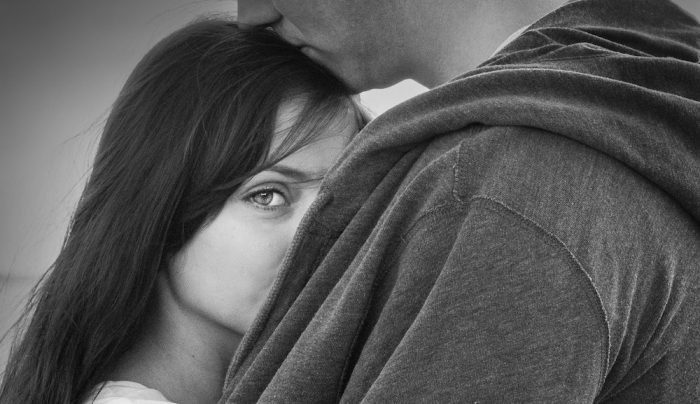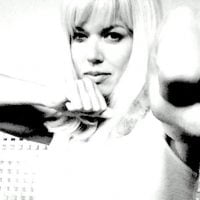When I went to a 12-step meeting, I began to wish the world could feel more like one.
The stories people told were honest and gritty. Strangers shared details so intimate that many wouldn’t even tell their therapist.
I winced a few times, laughed, and wiped empathetic tears away. If each speaker wasn’t proud of what they’d done, they were at least authentic and unafraid to tell it like it is. I knew instantly that was who I wanted to be: perfectly imperfect.
I’d always believed that addicts were bad people, but they aren’t. They are you, me, your best friend, cousin, lover, neighbor, boss. Science aside, I really do believe that everyone has the potential to be addicted to something, even if it is only a thought or an idea.
Growing up, addicts were the “other,” the kind of people we didn’t socialize with and definitely didn’t like. “People just need self control!” was my mother’s rational take on excess. She didn’t judge “them,” but she definitely couldn’t relate, and I carried that with me.
Each time I didn’t have control, I guilted myself. Other times, I took control in the reverse direction and decided self-discipline was doing without. To this day, when I think back to the six months I spent as a teenager living almost exclusively on Grape-Nuts and popcorn, in hopes of being skinny (spoiler alert: I already was), I shudder a little.
Little did I know that I’d grown up with addicts.
My father smoked and quit, but my parents’ divorce when I was two made him feel more like a distant stranger than anyone I shared genes with. My mother was careful to teach moderation in all things, except using chocolate to cope with life’s problems and worrying.
She worried her way through my childhood. First, she worried about my wild older siblings, who reached teenage rebellion when I was starting grade school. Then, it was about whether or not my stepfather would ever marry her. He did—and then she spent every moment after worrying whether or not she should leave that relationship. When I was 10, I remember holding her in my arms, scared at her sobbing and inability to cope. I knew it wasn’t my duty as a kid to console her, but I also knew she had no one else to listen—so I did.
I should backtrack. Actually, the first time I went to a 12-step meeting, I thought everyone was crazy.
It was a group that dealt with love and relationships, and I listened to a pregnant woman share her pride at not wearing lipstick when a repairman came. She gripped her blossoming belly with her tatted arms, true to her word, lipstick-free. I rubbed my very cherry red lips together, tasting a mixture of lipstick and chapstick, and decided I’d never come back to a meeting like this.
(FYI: There is a reason why many groups suggest newcomers try six meetings before they decide if they relate. It can take awhile to chip through your own denial and justifications.)
If my mother was addicted to worry, my stepfather was addicted to shopping. We owned multiple boats and cars, even when my mother could barely afford new underwear. We lived in a big house on several acres, but she rewashed our plastic freezer bags—partly out of environmentalism and the rest out of money woes. In all the ways my mother was disciplined, my stepfather was not. I watched this play out—their mutual misery, the yin/yang of it all—and decided that I would always put hedonism first.
After all, why not live in the moment? Isn’t it said that living in the moment is the fastest path to joy and fulfillment? I would fall in love, and if there was an impromptu road trip, count me in. Over time, I began to learn that what I thought of as “being in the moment” was actually my biggest addiction of all.
I wasn’t really living in the moment—I was escaping it.
Something happens when you spend your time always looking for the next best thing: you forget to appreciate what you have. It’s why someone can take a drink and forget their troubles. It’s why emotional eating gives a momentary illusion of calm and safety. It’s why the first kiss with someone new can feel like the best kiss. Each produces a natural high, but if you live from high to high, you are (you guessed it) probably addicted.
The trip wire to my perfect system came when I got a broken heart.
I’d known I was a romantic since childhood, ever since I decided that Valentine’s Day should be a national holiday. When I had my first broken heart, I cried for a year. I didn’t cry every moment of every day, but at least once a day, when I was alone. It didn’t help that my first love and I kept being “friends with benefits,” which benefited him a lot more than it did me.
My next broken heart came years later, after participating in a destructive love triangle. He loved her and I loved him. Not being loved back by someone you love that much leaves you feeling, well, pretty unlovable.
A breakthrough came during the aftermath of that relationship. I posted a sad poem online and received an anonymous reply from a stranger talking about “love addiction.”
Love addiction? The concept was foreign, but the symptoms seemed to fit. Which is how I wound up at that first 12-step meeting, even if my lipstick-coated denial told me that love addiction was a farce.
However, as my post-breakup life went on, the sadness remained. Others got over their breakups, yet I seemed to stay stuck. I appeared happy on the outside, but I missed that feeling he’d provided me with—even more than I actually missed him. My brain and body felt starved without him, the way some do when they stop using drugs.
I realized that loving him was a “high,” a Band-Aid that made me feel okay. I learned what being compulsive is when I’d tell myself not to email him, then would, and feel ashamed. He’d share my emails with his partner, who would see me in public, laugh, and call me catty names so mean that I’d have to look them up in the Urban Dictionary.
My current partner knew all about the former love triangle and didn’t appreciate being second fiddle to a fantasy lover. He suggested I go to another meeting about love. So, I did.
This time, for the first time, I saw myself in the stories I heard and fell in love with healing. I spent the next few years watching people say the things I’d always meant to. They shared their pain, family history, fears, joy, and failures. I shared mine and made friendships that would change me for the better and be lifelong. I learned that I didn’t need anyone else to be whole, though I’m still working on not needing chocolate.
How we appear to the world is only the tip of the iceberg. For every person you think is living the perfect life on social media or elsewhere, there is more below the surface that doesn’t show. There might even be parts they haven’t learned about themselves or come to terms with…yet.
It’s important to be able to exist in the moment without needing anything extra. It took some time, but I focused on mindfulness and discovered how cathartic yoga could be.
For me, now? The most beautiful life moments aren’t at the top of a rollercoaster or in the next love affair. I now have a partner who sees the world the same way I do, and I’ve learned what unconditional love really is. I’m free from needing an endless supply of distractions to thrill or fulfill me. Even the way I experience romantic love has changed; it’s not fleeting or filled with a sense that I’m unlovable.
To all of you being perfectly imperfect, I see you and you’re amazing. Life is meant to be a lesson and a journey, and it’s okay to take missteps along the way. Let go of the judge and jury that are mostly in our own minds.
We can learn from our addictions and strengthen our ability to navigate balance. It’s okay to be you.









Read 1 comment and reply